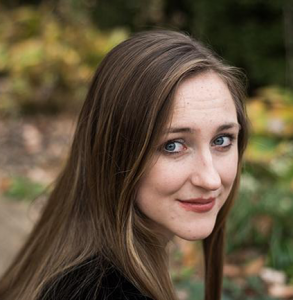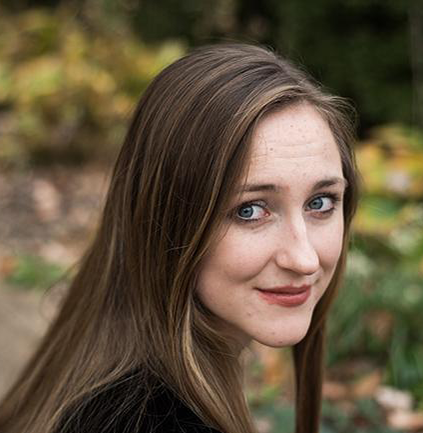
Hannah Schneider (COL ’15) won a Rhodes scholarship to pursue a two-year master’s of philosophy degree in music at the University of Oxford. Schneider is the 24th Rhodes scholar in Georgetown University history and one of 32 Americans selected for 2016 scholarships.
During her time at Georgetown, Schneider, 23, developed a program with Carnegie Hall to find musical talent in the North Caucasus region of Russia, served as concertmaster of the Georgetown Symphony Orchestra and served as editor-in-chief of Utraque Unum, Georgetown’s undergraduate research journal.
Schneider is currently the director of special projects for the Mariinsky Foundation of America, dedicated to fostering greater partnerships between the United States and Russia through music and theater, and serves as an assistant to Russian conductor Valery Gergiev. While at Oxford, Schneider plans to specialize in music composition.
In an interview with The Hoya, Schneider discussed the role of music in her life, her time at Georgetown and her future.
The majority of your achievements at Georgetown in your post-grad life and in winning the Rhodes Scholarship have been centered around music. Can you speak a bit about the role of music in your life and why it is important to you?
Well, first, I’m actually not sure the majority of my time at Georgetown was spent doing music. A lot of it was, but I think I spent a lot of time doing other things. Whether it was pickup soccer or editing Ultraque Unum, spending time at the Tocqueville Forum or the Christian Fellowship, I think ultimately it was a decision to pursue music. Mostly because I decided that was the best place I could have the most impact in the world.
I came to Georgetown planning to go into foreign service, focusing on U.S.-Russian foreign policy. I would say that I made the choice to go into music because I realized that music has the potential to create a cultural and societal impact that isn’t stymied by politics or political stalemates. And what I saw in current trends was stalemate after stalemate, and I wanted to do something that could break through those tendencies.
How did Georgetown shape your relationship with music?
It’s funny. I came to Georgetown determined to quit music. I came to Georgetown partly because it wasn’t known for music. I was essentially making a change. I thought that I was leaving conservatory to go and do something that I considered more useful, something not in the arts, something “practical.” I thought I would be an economics major. And then after about three months, I realized that I missed it; there is a transcendent draw to music that I just wasn’t able to satisfy anywhere else. So I would say honestly that I stuck with music in spite of the culture of Georgetown, not necessarily because of it.
I’d like to qualify that however; Georgetown did shape the way I think about music in a particular regard. Georgetown has a remarkable culture of service that is quite unusual at undergraduate institutions. So while I didn’t necessarily come thinking that I would integrate music and service, by the time I wended my way back to music, I had begun to reimagine how I might integrate whatever my life work is into greater practical societal good. Georgetown undoubtedly had a role in that.
What inspired you to begin the recording program for musicians in the North Caucusus region?
My interest began with independent research I was conducting on the region. And it got to the point where I really wanted the rubber to meet the road. I felt compelled to test my findings, and see if I could budge the needle. So I wanted to see basically: Is the talent there in this region and does it just need to be promoted? Can I find people and help them achieve their goals by serving as a bridge between promoters and musicians or between agents and musicians?
But more than that I also wanted to understand and see firsthand what music can do in essentially a very conflicted and economically and politically challenged region. And what I found was a startling and compelling draw toward music. You would expect people to turn away from the arts in times of conflict, but on the contrary, I found that music permeated life; it was a sustaining and ennobling feature in the various communities I visited.
Why did you decide to apply for the Rhodes scholarship?
A couple of reasons. First, I am trying to pursue advanced music training, so I really did want the graduate school experience. But beyond that, the Rhodes puts a great emphasis on attracting people who are committed to using their skills for the betterment of the world, and I wanted to spend two years around those people.
What moments in your Georgetown career do you remember most? What role did Georgetown play in your winning the Rhodes scholarship?
The most memorable moments center around weekends of intellectual challenge and reflection with my professors and friends — particularly on retreats — such as the Tocqueville Forum retreat in the fall of my freshman year. But office hours also played an integral role in my personal development; there are a few professors and mentors who went above and beyond to grapple with my endless questions and encourage me to wrestle with the intellectual and ethical questions that gripped me. If I had to name a few, they would be professors Fedorova and Meerson in the Russian department and professor Mitchell in the government department.
The reason this is a difficult question to answer, however, is that there isn’t a particular institutional way that Georgetown prepared me for this scholarship. The funny thing about the Rhodes is that they examine your life — your academic record, yes, but also your ethical choices and your priorities. And so if I talk about what enabled me to apply for the Rhodes, it was my friends, my teammates, the people at my church, my professors, because each of them played a role in challenging me to continue in the work that I was doing in various ways, whether that was again being a faithful friend, or continuing to ask the hard questions in scholarly research.
What do you plan to do after your time at Oxford? What does your future hold?
I’ll tell you after Oxford [laughs]. I would like to conduct an orchestra. But I’m also thinking about ways to increase access points for classical music and rethink performance models, the art form, and new ways to engage younger audiences. So that’s a broad goal, and how exactly that will manifest after Oxford, I can’t say yet.





















